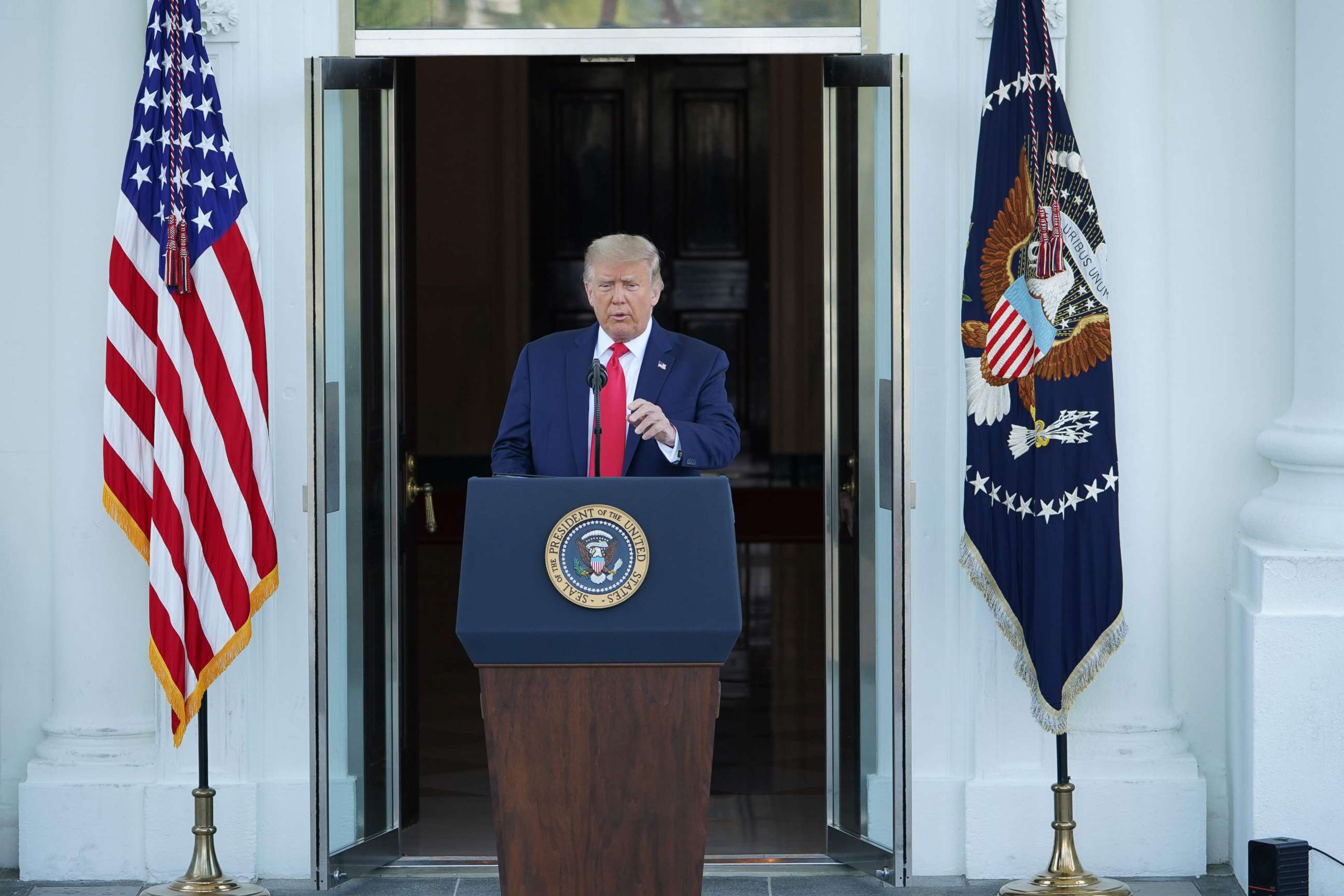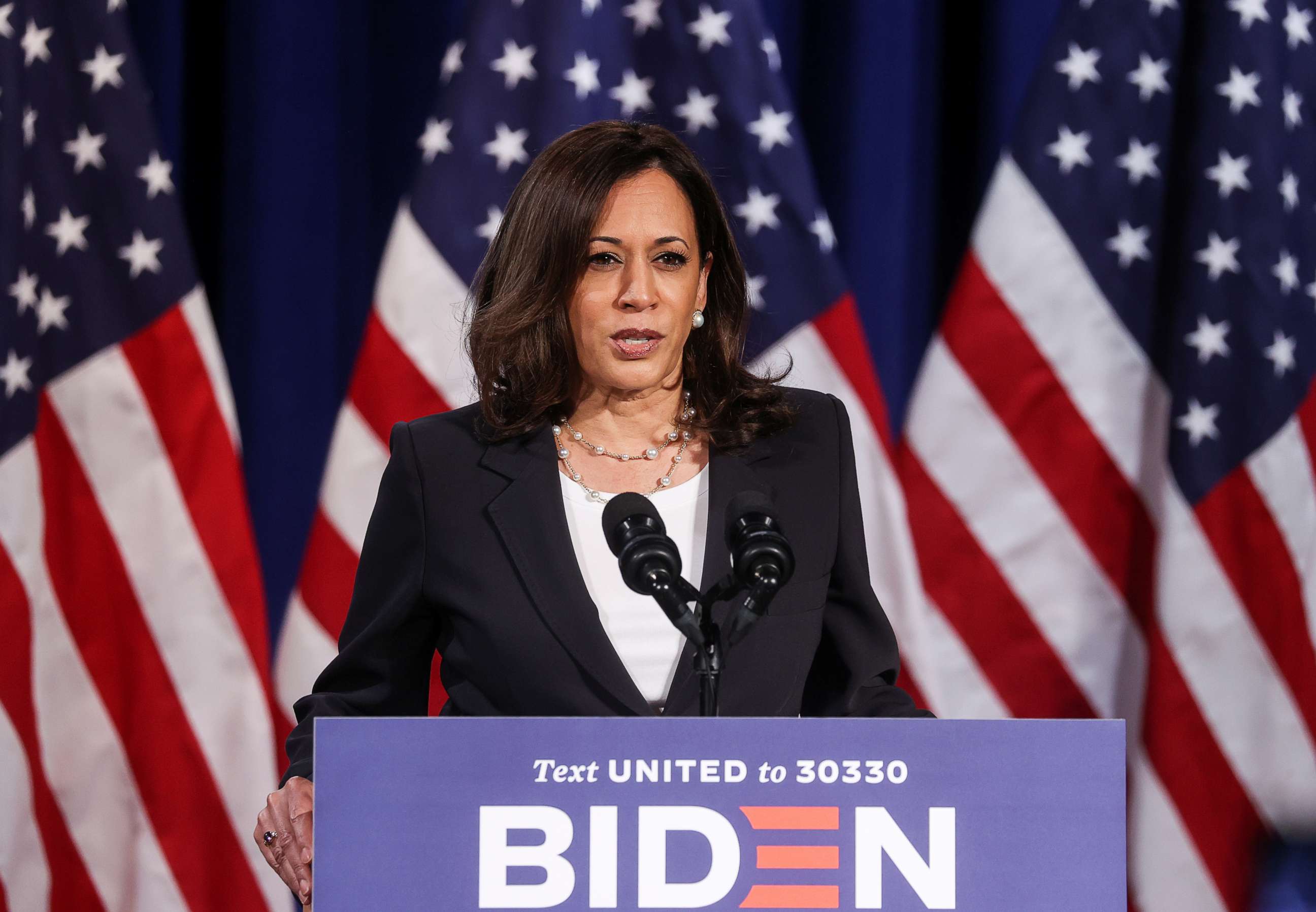Trump makes rosy vaccine timing front and center in campaign, predicting it's possible before Election Day
He says Democrats are playing politics in saying they don't trust his claims.
The race to develop a vaccine for the novel coronavirus has taken center stage in President Donald Trump's reelection campaign as he persisted in making rosy predictions on Tuesday, claiming one would be available "very soon."
With the election less than two months away, and the president’s poll numbers suffering under scrutiny over his handling of the pandemic, Trump has taken to repeatedly hyping the possibility of a vaccine before Election Day, despite top health experts having cautioned that it’s unlikely.
“You could have a very big surprise coming up. I’m sure you’ll be very happy. But the people will be happy. The people of the world will be happy,” Trump told reporters Monday in a Labor Day press conference from the steps of the White House. “We’re going to have a vaccine very soon, maybe even before a very special date. You know what date I’m talking about,” Trump said, even as he accused his Democratic opponents of playing "dangerous" politics with a vaccine.
The president’s suggestion on Monday was just the latest in a series of comments teasing the possibility of an early vaccine in contradiction of what top health officials have said.

Monce Slaoui, the chief scientific overseeing the administration's effort to accelerate production of a coronavirus vaccine known as Operation Warp Speed, told NPR last week "extremely unlikely, but not impossible.”
"There is a very, very low chance that the trials that are running as we speak could [be completed] before the end of October and therefore there could be -- if all other conditions required for an Emergency Use Authorization are met -- an approval," Slaoui said.
Other top officials, including NIH’s Dr. Anthony Fauci and Surgeon General Jerome Adams have similarly cautioned that the prospect of a vaccine before November is not probable.
In an interview with The New Yorker, Fauci said he worries about how vaccine science is being communicated to the public.
“I never liked the ‘warp speed’ terminology,” he said, referring to the "Operation Warp Speed" name Trump has given to the project. “It suggests, incorrectly, that you’re rushing things. Whenever people hear things are being rushed, they worry about safety. They think you’re prematurely putting something out there that isn’t entirely safe," Fauci said, saying the speed refers to the government committing to buying millions of doses of vaccines before they are proven. “If a vaccine doesn’t work, you’ve lost a few hundred million dollars,” Fauci told the magazine. “If it does work, if it’s safe and effective, you’ve saved four, five, six months of waiting to get people the vaccine. That’s huge.”

But whatever the scientific realities, the president’s persistent rhetoric has put the issue front and center in the campaign. The Democratic ticket has countered the president’s optimistic projection with a dose of skepticism.
Democratic vice presidential nominee Sen. Kamala Harris said in an interview with CNN that she would "not trust Donald Trump" alone if a vaccine were to be approved before Election Day.
"Well I think that’s going to be an issue for all of us. I will say that I would not trust Donald Trump and it would have to be a credible source of information that talks about the efficacy and the reliability of whatever he’s talking about. I will not take his word for it,” Harris said.
Former Vice President Joe Biden similarly said he would “want to see what the scientists said" and that there would need to be “full transparency on the vaccine.”
But while the Democrats warn President Trump is playing politics with his rhetoric on the vaccine, the president counters that it’s the Democrats who are engaging in “dangerous” political rhetoric by raising doubts.
“It’s so dangerous for our country, what they say, but the vaccine will be very safe and very effective,” Trump said Monday, responding to Harris’ comments that she wouldn’t take the president’s word for it if he announced a vaccine was ready without scientific backing.
Against the backdrop of the political pressure surrounding the vaccine ready date, nine companies working to develop a vaccine came forward with an unusual pact Tuesday making it clear they will not be rushed and pledging to adhere to strict standards in the race to develop a vaccine.
“We believe this pledge will help ensure public confidence in the rigorous scientific and regulatory process by which COVID-19 vaccines are evaluated and may ultimately be approved,” the pact reads, with the CEOs pledging to follow “high ethical standards and sound scientific principles.”
President Trump, for his part, denies that he is politicizing the vaccine even as he persists in making statements projecting that it could be ready on a timeline that outstrips what top experts have projected.
"No, I'm saying that because we want to save a lot of lives. The fast --With me, it's the faster the better. With somebody else, maybe they would say it politically, but I'm saying it in terms of this is what we need. We have to have. If we get the vaccine early, it's a great things. Whether it's politics or not,” Trump said Monday.
White House Chief of Staff Mark Meadows came to the president’s defense in echoing his optimism that “we will have something by the end of October” and dismissed the notion that the president is putting political pressure on science.
“When we look at and trying to suggest that the president is putting his finger on the FDA or NIH or anything else, the facts just do not back that up. Lots of rhetoric backs it up, but the facts do not,” Meadows said.




